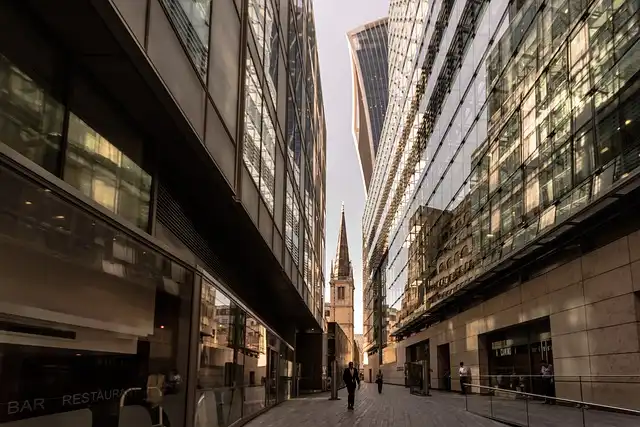AGR Dues: Telecoms Seek Relief from Interest, Penalty

Telecom operators, including Airtel & Vodafone Idea, seek waivers on interest & penalties related to AGR dues. Supreme Court rulings impact financial stability. Government considers options.
Of the overall Rs 1.47 lakh crore of AGR dues– which telecom operators were needed to pay by January 2020 as a result of the apex court’s order– nearly 75% comprised passion, penalty and interest on fine, the companies claimed. The licence fee dues amounted to Rs 92,642 crore, while the range use cost was Rs 55,054 crore, according to the order of September 2020.
AGR Dues Breakdown
While Airtel and Bharti Hexacom have to pay a principal quantity of Rs 9,235 crore toward AGR dues, passion of Rs 21,850 crore, fine and rate of interest on penalty of Rs 3,995 crore and Rs 8,900 crore, specifically, are likewise payable.
The peak court had then stated no revaluation of AGR dues would certainly be permitted and any default would invite rate of interest and charge, along with ridicule of court fees.
Supreme Court’s Stand on Dues
The Supreme Court on September 19 in 2014 rejected a batch of medicinal requests submitted by telcos versus charge of penalty and rate of interest on charge, along with a modification in what the damaged providers asserted were arithmetical mistakes in DoT’s estimations.
Supporting DoT’s estimations on quantum of AGR need, the apex court in February had denied a set of evaluation requests by telecom operators seeking “rectification” of unintended additions or arithmetical mistakes.
The Supreme Court asked the business on September 1, 2020, that they required to pay their defaults over a 10-year duration, after paying 10% of the AGR fees ahead of time by March 31, 2021. Thereafter, the deferred payment cycle would certainly start from 2026 and run up until 2031, with the 10% amount to be paid by March 31 every year. The apex court had after that said no revaluation of AGR dues would certainly be permitted and any default would certainly invite rate of interest and penalty, in addition to contempt of court costs.
The government had currently earlier given significant alleviation to Vi by converting its charges into equity, said the joint application by the Bharti firms.” Therefore, to guarantee a level playing field, the alleviation looked for using the present request, and that prayed for by Vi in a comparable request, have to be granted on a non-discriminatory basis to all influenced TSPs/licence holders similarly, who were events to the SC’s September 2020 judgement.”
Government’s Stake in Vi Survival
‘Survival at Risk’ The Vi application even more mentioned that the government has “a crucial stake in the survival of the business.” Also after transforming several of its charges into nearly 49% equity, the federal government still has fees of roughly Rs 1.19 lakh crore towards spectrum fee, along with AGR dues, to be recouped from Vodafone, it pointed out.
Recognising the federal government’s initiatives to offer numerous concessions and bundles to the telecom companies, consisting of Vi, complying with the AGR decision, both business had asked the top court to additional direct the Centre to “act rather and on a non-discriminatory basis,” and not insist for repayment of rate of interest, fine and passion on charge on AGR dues.
Along with the major amount of Rs 12,797 crore in AGR fees, Vi is reliant pay an interest of Rs 28,294 crore, charge of Rs 6,012 crore, and interest on fine of Rs 11,151 crore, the business stated in its application.
Right after the government lately converted Vi’s spectrum fees of over Rs 39,000 crore into equity, Airtel had additionally contacted the telecommunications department, asking if it had the choice to transform its Rs 41,000-crore AGR charges into equity. The government has not yet responded to that request.
Airtel Seeks Equity Conversion
While debt-laden Vi looked for a waiver of more than Rs 45,000 crore in AGR dues to ensure its “survival,” Bharti Airtel and its device, Bharti Hexacom, desired waiver of Rs 34,745 crore on an “fair basis.”
“Due to the substantial AGR liability and no bank funding, Vodafone’s (Concept’s) very survival goes to danger. Any kind of disturbance in services will have a far-ranging and direct bearing on approximately 200 million customers,” Vi stated in its appeal.
DoT had then estimated cash-strapped Vodafone Concept’s dues at Rs 58,300 crore, but the telco had actually self-assessed the charges at Rs 21,500 crore, and has actually so much paid Rs 7,900 crore. Bharti Airtel’s fees, as per DoT, stood at Rs 44,000 crore, contrasted with the driver’s own evaluation of around Rs 13,000 crore. Bharti Airtel has actually so much paid Rs 18,000 crore, including a Rs 5,000-crore advertisement hoc payment.
Making clear that they are not testing the High court judgment yet just seeking a waiver of the concern of interest, charge, along with interest on charge, the Bharti business claimed the September 1, 2020, reasoning (on AGR) has actually “triggered a crippling financial effect across the telecom field.”
Financial Impact on Telecom Sector
DoT had after that approximated cash-strapped Vodafone Idea’s dues at Rs 58,300 crore, however the telco had self-assessed the dues at Rs 21,500 crore, and has actually until now paid Rs 7,900 crore. Bharti Airtel’s dues, as per DoT, stood at Rs 44,000 crore, compared with the driver’s own analysis of around Rs 13,000 crore. Bharti Airtel has actually thus far paid Rs 18,000 crore, consisting of a Rs 5,000-crore ad hoc settlement.
1 AGR dues2 Bharti Airtel Africa
3 Financial Relief
4 including Vodafone Idea
5 Indian telecom sector
6 Supreme Court instructs
« Vodafone Idea: AGR Dues, Equity, and Government StakeDTH Future: Regulatory Discrepancies & Market Dynamics in India »
